16 High-Protein Foods That Beat Eggs For Weight Loss
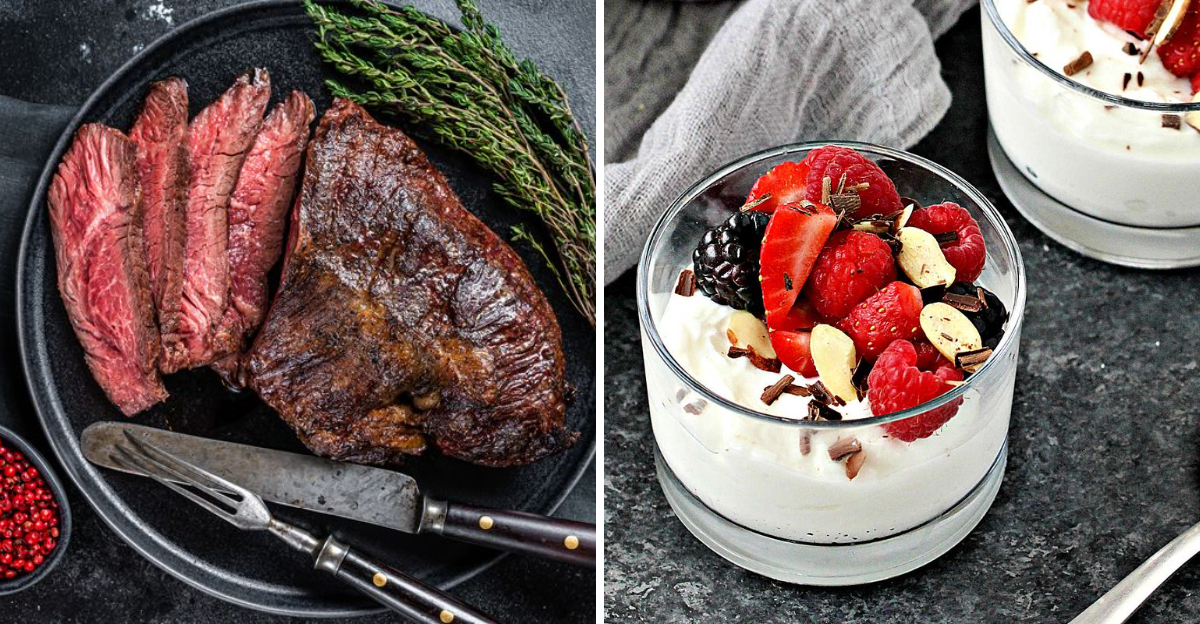
Explore a world of high-protein foods that outperform eggs in aiding weight loss. Each item in this list not only offers a protein boost but also brings unique flavors and nutritional benefits to your diet. From lean meats to plant-based options, these foods provide the variety you need to maintain a balanced and exciting meal plan.
1. Chicken Breast
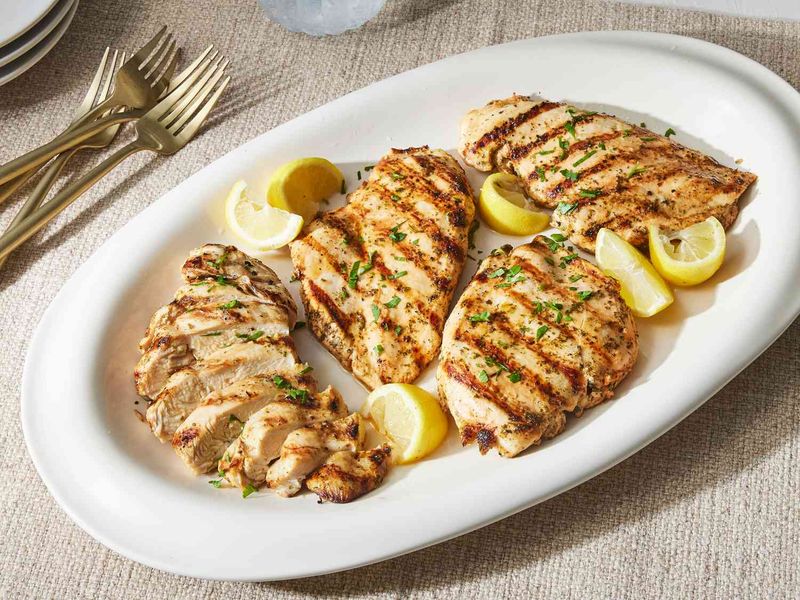
Chicken breast is a versatile and lean protein source, often hailed as a staple in weight loss diets. With approximately 26 grams of protein per 3-ounce serving, it offers more than double the protein found in an egg, while maintaining fewer calories per gram. This makes it an excellent choice for those looking to build muscle and shed pounds.
You can prepare chicken breast in countless ways, from grilling and baking to sautéing and poaching, ensuring that it never becomes a boring meal option. Its mild flavor easily absorbs marinades and spices, offering endless culinary possibilities.
2. Tuna (canned in water)
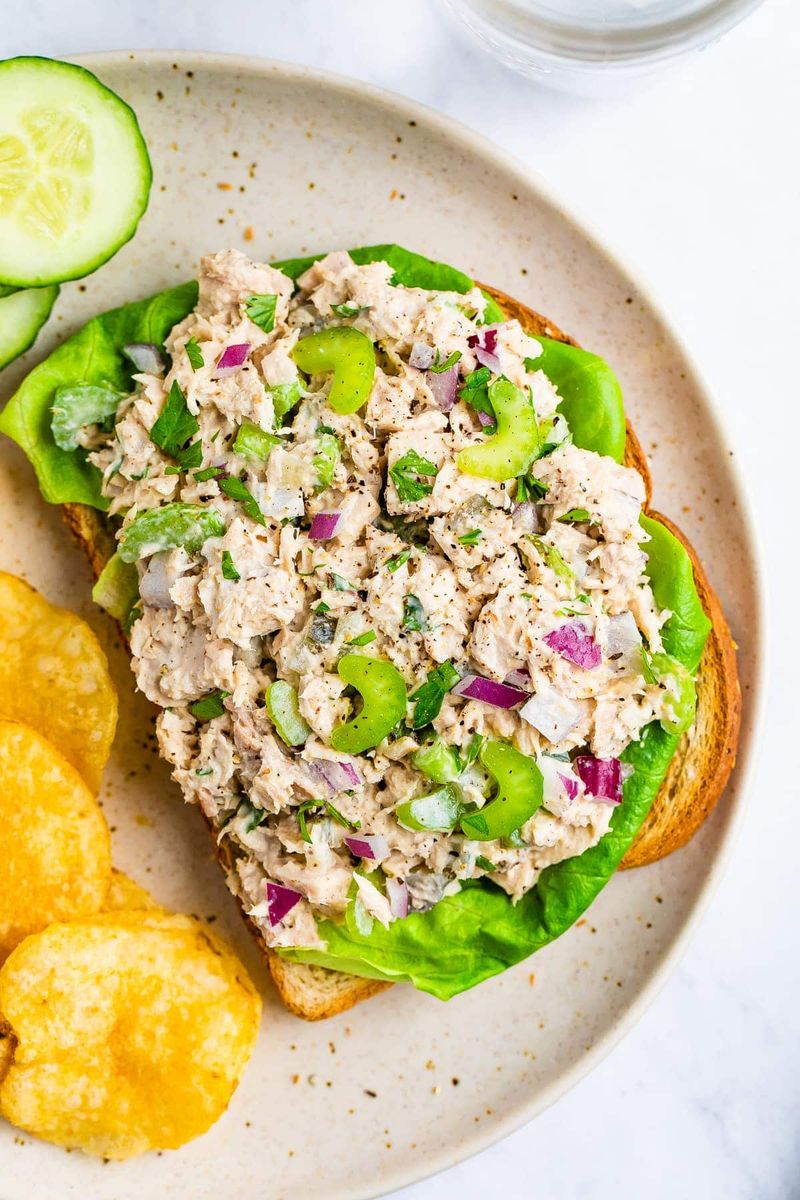
Canned tuna is a pantry hero, providing about 20 grams of protein per 3-ounce serving. It’s not only high in protein but also low in fat and carbs, making it a perfect addition to salads, wraps, or a quick snack.
The convenience of canned tuna allows for quick preparation and variety in meals, whether you’re mixing it with mayo for a classic tuna salad or adding it to a pasta dish for extra protein. Its mild flavor complements a variety of seasonings, making it easy to adapt to your taste preferences.
3. Turkey Breast
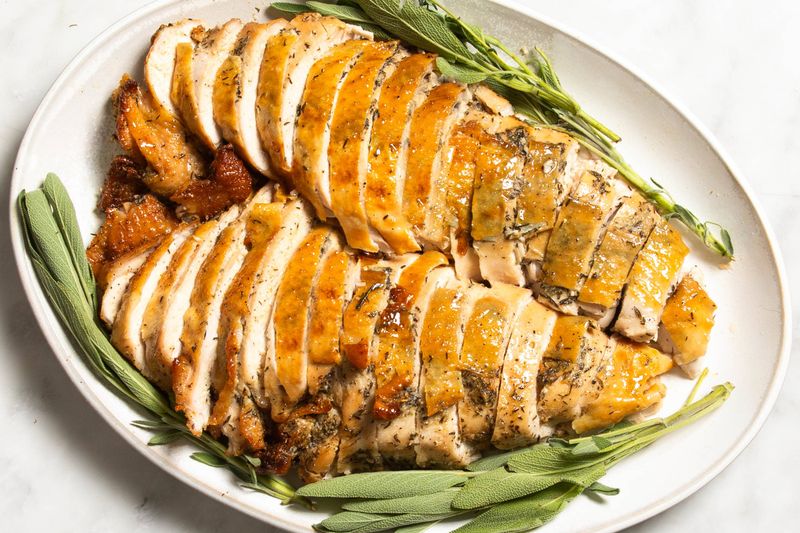
Turkey breast, known for its lean properties, offers about 25 grams of protein per 3 ounces. It’s a favorite for those focusing on muscle-building and fat loss, given its impressive protein content and low fat levels.
Often enjoyed during festive seasons, turkey breast can be a regular meal component due to its versatility. Roast it with herbs for a hearty meal or slice it thin for sandwiches. Its ability to hold flavor from spices and marinades makes it a dynamic choice for creative cooking.
4. Salmon

Salmon stands out not just for its protein content—around 22 grams per 3-ounce serving—but also for its rich omega-3 fatty acids, which aid in inflammation reduction and metabolism support.
This flavorful fish can be grilled, baked, or pan-seared, offering a moist and tender texture. Its unique taste pairs well with a variety of seasonings, from simple salt and pepper to more exotic spice blends. Salmon is a treat for those looking to enhance their dietary protein while enjoying a gourmet meal experience.
5. Shrimp
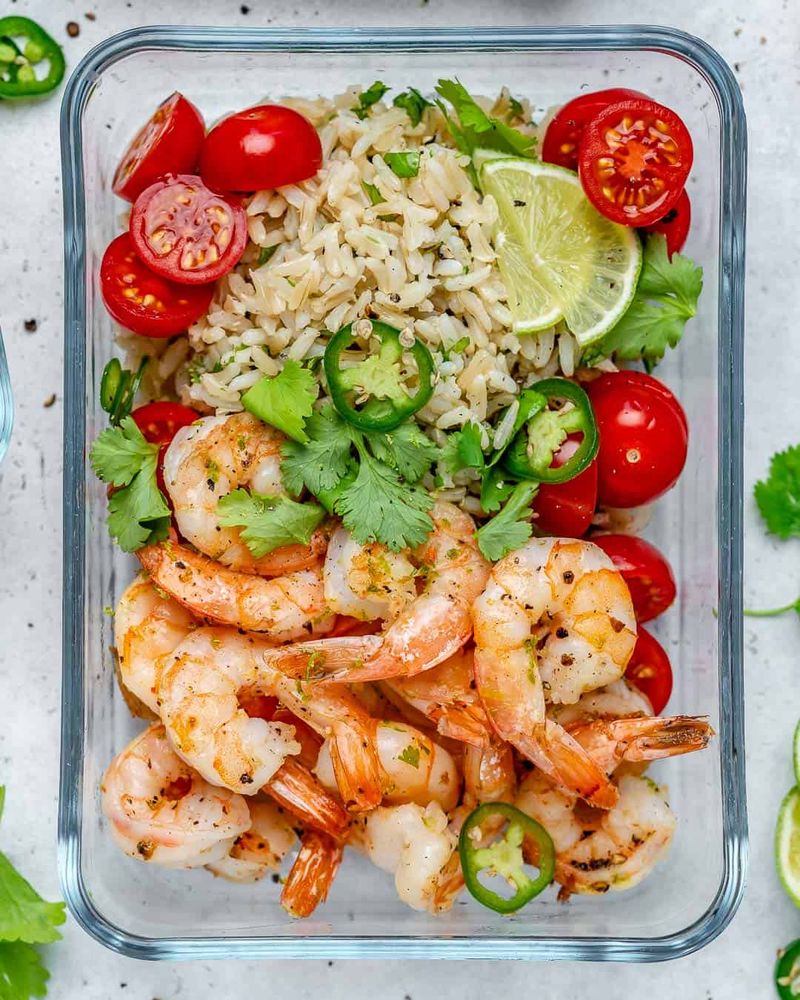
Shrimp is a delightful seafood option, boasting 20 grams of protein per 3-ounce serving while being remarkably low in calories. Its versatility allows it to enhance dishes like stir-fries, salads, and skewers, providing a burst of flavor and protein.
The tender, sweet taste of shrimp complements a wide range of ingredients, making it a popular choice for healthy meals. Whether boiled, grilled, or sautéed, shrimp makes for a quick and satisfying protein source that can elevate any dish.
6. Lean Beef (90% lean or better)
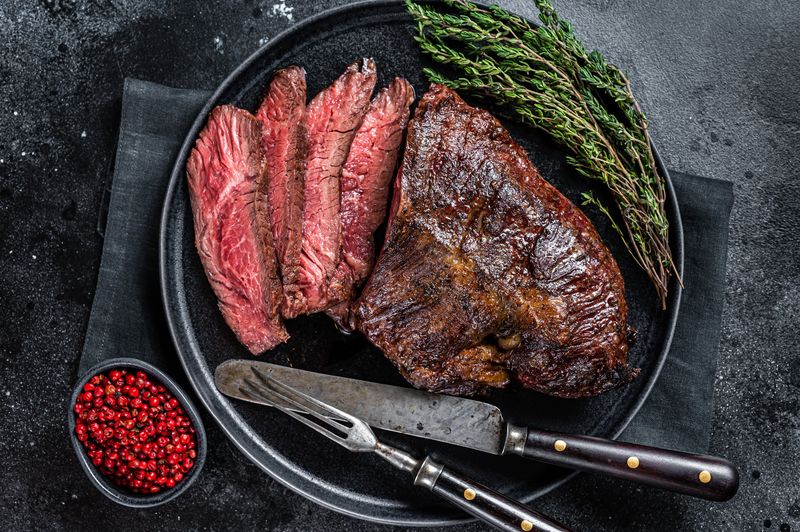
Lean beef, particularly cuts that are 90% lean or better, offers approximately 22 grams of protein per 3-ounce portion. It’s known for providing essential nutrients like iron, which supports oxygen transport in the body.
Grass-fed beef, when possible, adds an extra nutritional punch, including higher omega-3 levels. The rich, satisfying taste of lean beef makes it a go-to for those looking to curb hunger and maintain energy levels. Enjoy it grilled, in stews, or as part of a hearty salad.
7. Greek Yogurt (plain, nonfat)

Greek yogurt is a breakfast favorite, delivering approximately 17 grams of protein per ¾ cup serving. Its thick, creamy texture and tart flavor make it a versatile choice for breakfast, snacks, or as a base for smoothies.
Beyond its protein content, Greek yogurt supports gut health with probiotics, enhancing digestion and nutrient absorption. Try it with honey and nuts for a sweet treat, or blend it into savory dips for a tangy twist. Its adaptability in both sweet and savory dishes makes it a valuable addition to your diet.
8. Cottage Cheese
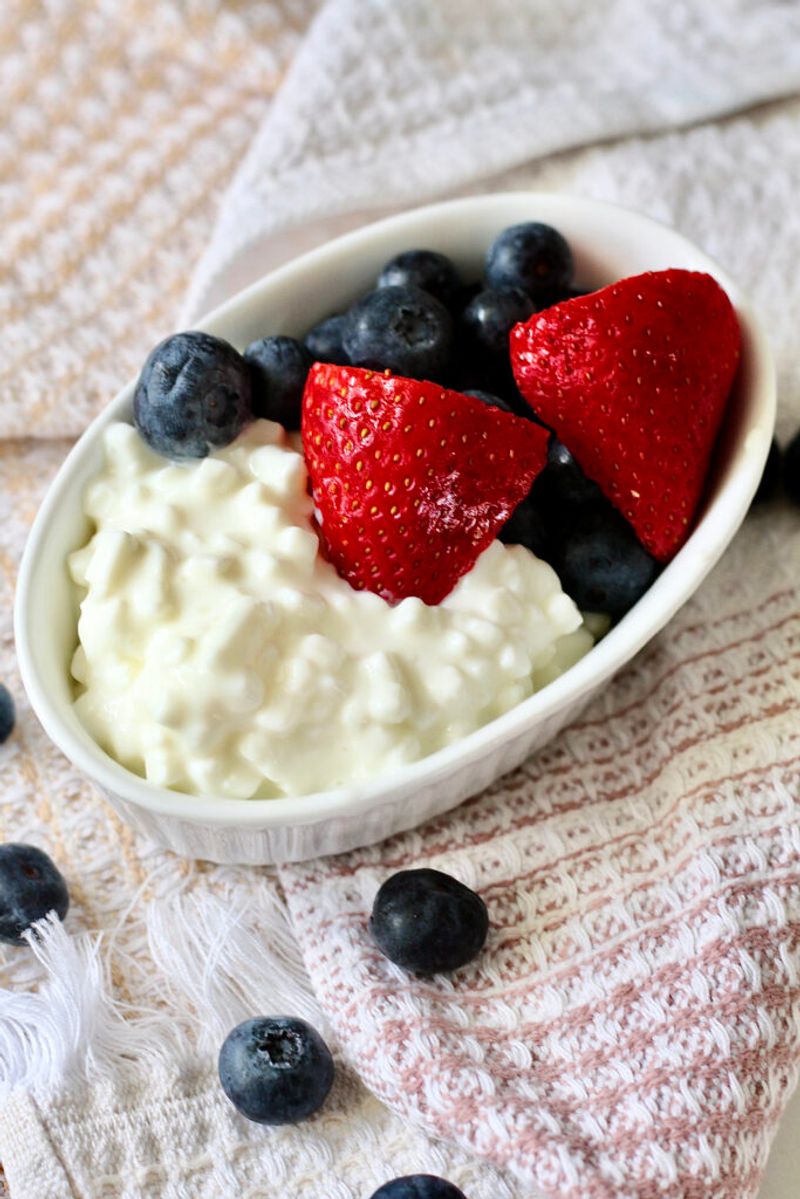
Cottage cheese is a protein powerhouse, offering around 14 grams of protein per ½ cup serving. Its rich casein protein content is slow-digesting, making it an ideal snack before bed to support overnight muscle repair.
Its mild, slightly tangy taste allows it to pair well with both sweet fruits and savory vegetables. Enjoy it plain, or mix it with pineapple for a refreshing snack. Cottage cheese is a versatile ingredient that can be incorporated into a variety of meals, making it a staple for health-conscious individuals.
9. Tempeh

Tempeh, a fermented soy product, provides around 16 grams of protein per 3-ounce serving. Its nutty flavor and firm texture set it apart from its soy counterpart, tofu, offering a unique taste experience.
Fermentation makes tempeh easier to digest while enhancing its nutritional benefits. Use it in stir-fries, sandwiches, or as a meat substitute in various dishes. Tempeh’s ability to absorb flavors from marinades makes it a dynamic and exciting choice for plant-based protein seekers.
10. Tofu (extra firm)

Tofu, especially the extra-firm variety, contains about 10 grams of protein per ½ cup serving. This plant-based staple is versatile, fitting seamlessly into dishes from stir-fries to scrambles.
Tofu’s subtle flavor allows it to absorb spices and sauces, making it adaptable to different cuisines. It’s an excellent protein source for vegetarians and vegans, offering essential amino acids and nutrients. Whether you grill it, fry it, or bake it, tofu is a reliable go-to for adding protein to any meal.
11. Edamame
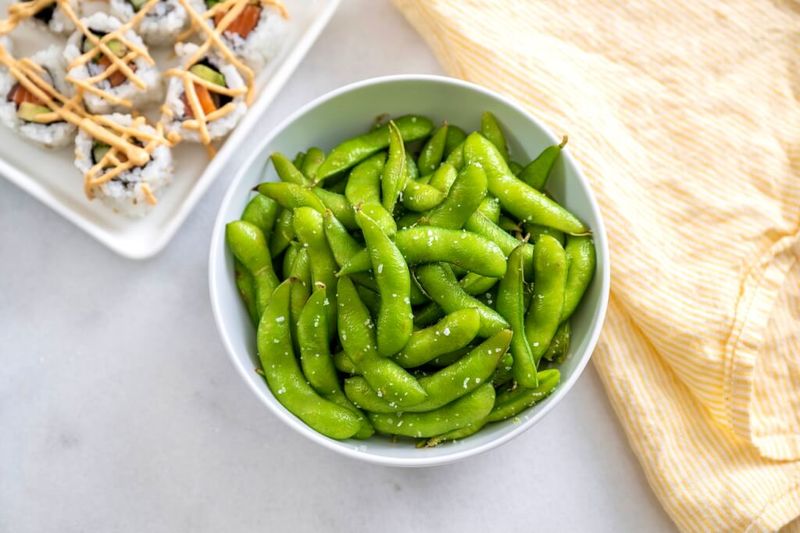
Edamame, young soybeans, pack a protein punch with about 17 grams per cup when cooked. These vibrant green pods are not only rich in protein but also high in fiber, making them a satisfying snack or side dish.
Simple to prepare, edamame can be steamed and seasoned for a quick, nutritious bite. Their slightly sweet and nutty flavor pairs well with a sprinkle of salt or a dash of soy sauce, providing a healthy and flavorful option for protein lovers.
12. Skyr (Icelandic Yogurt)
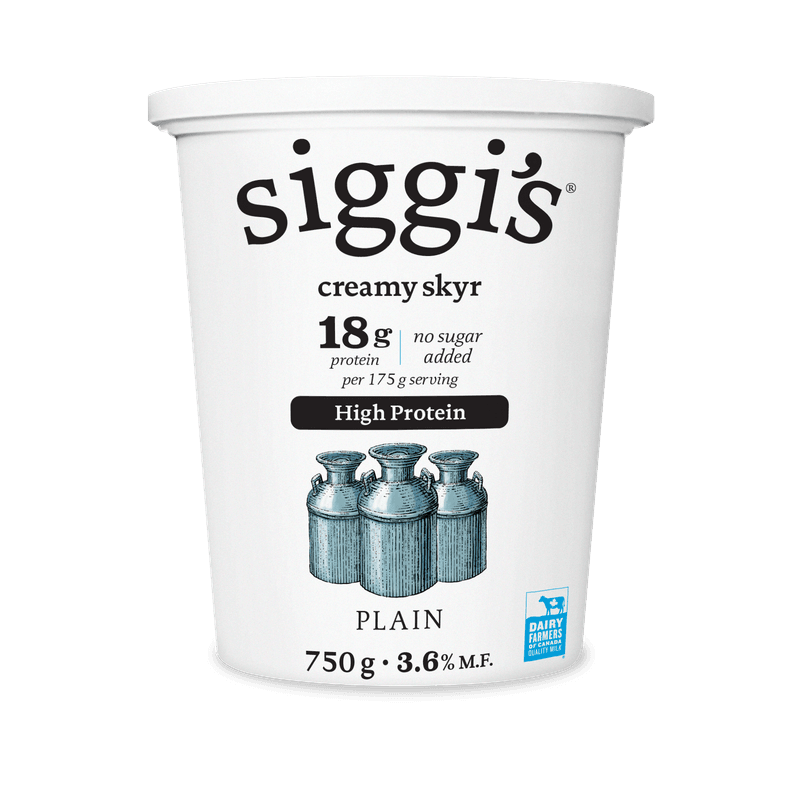
Skyr, a traditional Icelandic dairy product, boasts a protein content of about 19 grams per cup. Known for being thicker and higher in protein than Greek yogurt, skyr is a creamy delight with a tangy taste.
Its low sugar content and probiotic benefits make it a nutritious choice for breakfast or snacks. Enjoy it plain or with fruits and nuts for added texture and flavor. Skyr’s rich consistency and nutritional profile make it a standout option for those seeking more protein in their diet.
13. Lentils (cooked)
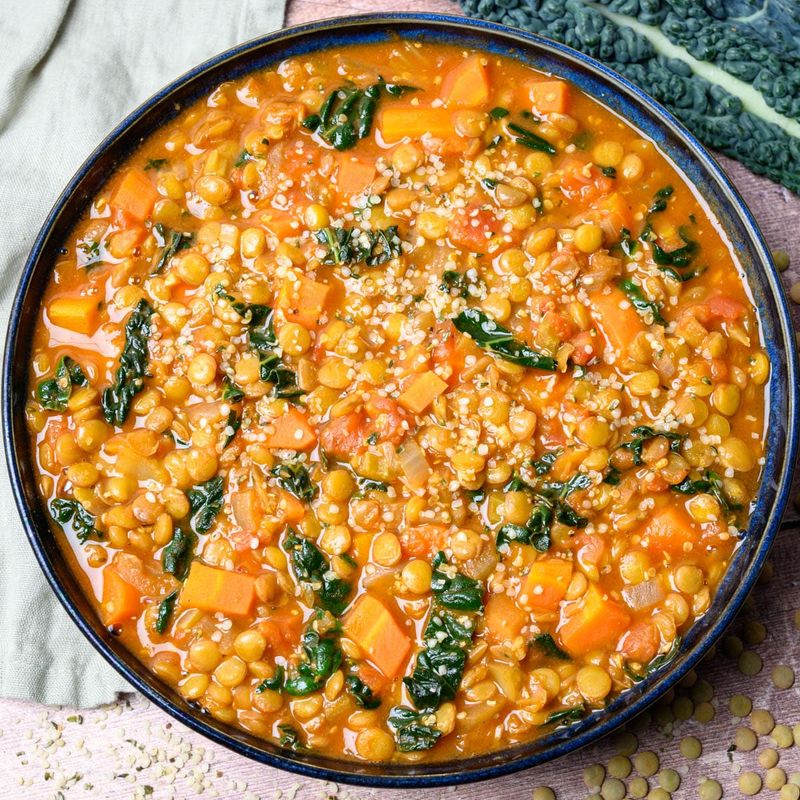
Lentils offer an impressive 18 grams of protein per cooked cup, providing a plant-based protein option that’s both filling and rich in fiber. They’re versatile in the kitchen, working well in soups, salads, or as a base for veggie bowls.
These tiny legumes are not only protein-rich but also packed with essential nutrients like iron and folate. Lentils’ earthy flavor is enhanced with spices and herbs, making them a delicious and nutritious choice for vegans and vegetarians alike.
14. Black Beans (cooked)
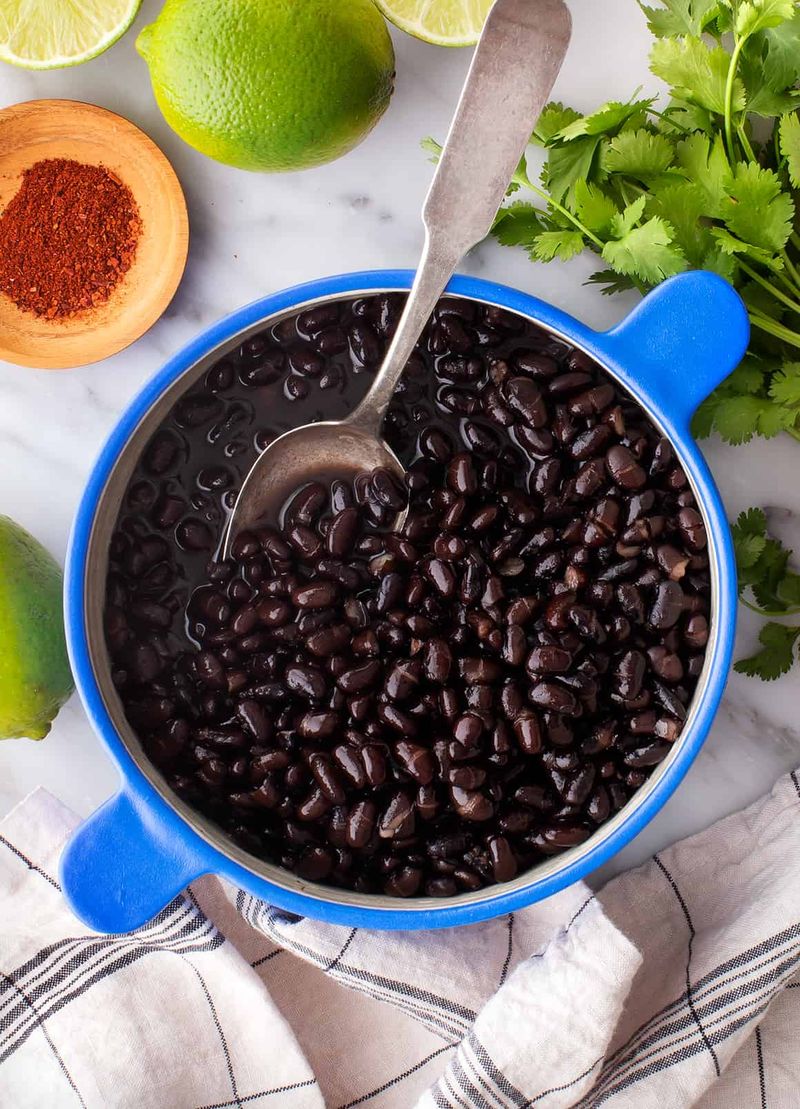
Black beans are a staple in many diets, offering 15 grams of protein per cooked cup. They’re not just high in protein; they’re also loaded with fiber, helping you feel full and satisfied for hours.
Incorporate black beans into soups, tacos, or salads for a hearty and nutritious meal. Their rich, savory flavor pairs well with a variety of spices, making them a versatile ingredient in both Latin and international cuisines.
15. Peanut Butter Powder
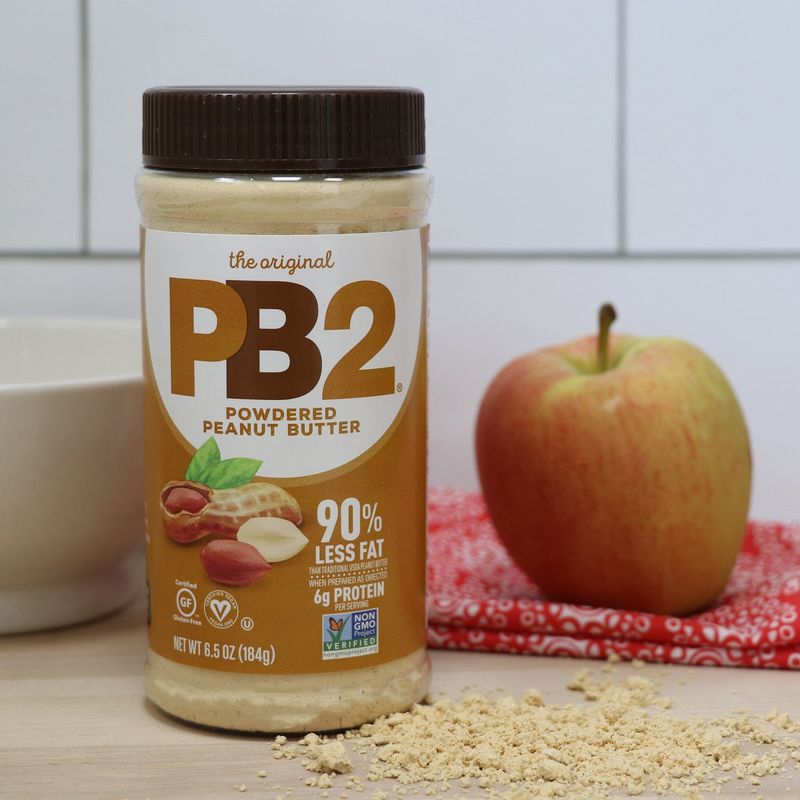
Peanut butter powder is a game-changer for those seeking protein without the extra fat, offering about 8 grams per 2 tablespoons. Its concentrated peanut flavor is perfect for enhancing shakes, smoothies, or oatmeal.
Mix it with water to create a lower-fat peanut butter spread, or sprinkle it into recipes for a nutty boost. This powdery form of peanut butter retains the protein and flavor while cutting down on calories, making it a smart choice for those monitoring their intake.
16. Protein Powder (whey or plant-based)
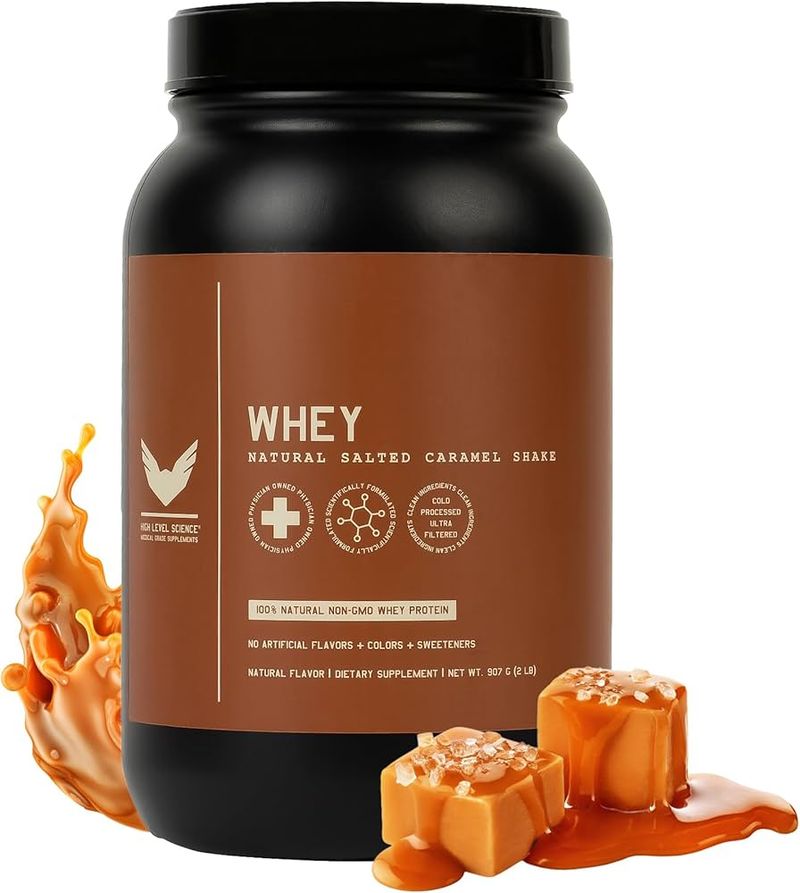
Protein powder, whether whey or plant-based, provides a convenient way to boost your protein intake, with 20-25 grams per scoop. It’s perfect for post-workout shakes or adding to recipes for a protein boost.
Choose clean, low-sugar options to ensure you’re getting the most benefit. Mix it into smoothies, oatmeal, or baking recipes for a versatile protein source that fits seamlessly into your daily routine. Its adaptability and convenience make protein powder a favorite among fitness enthusiasts.
